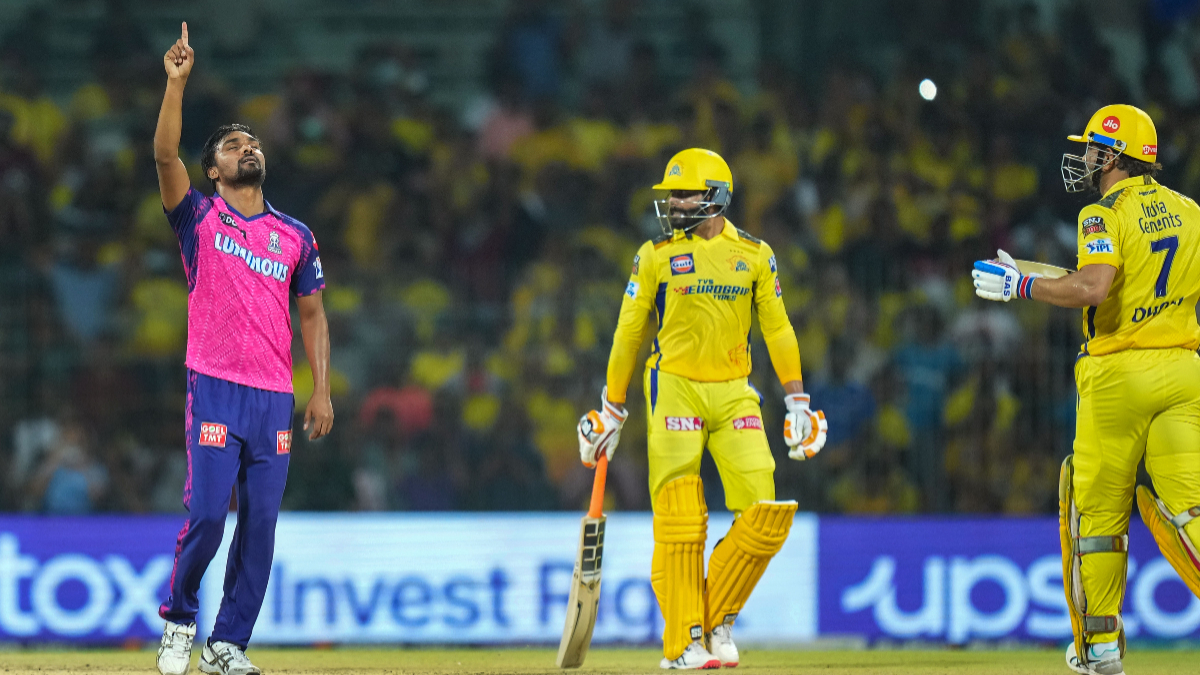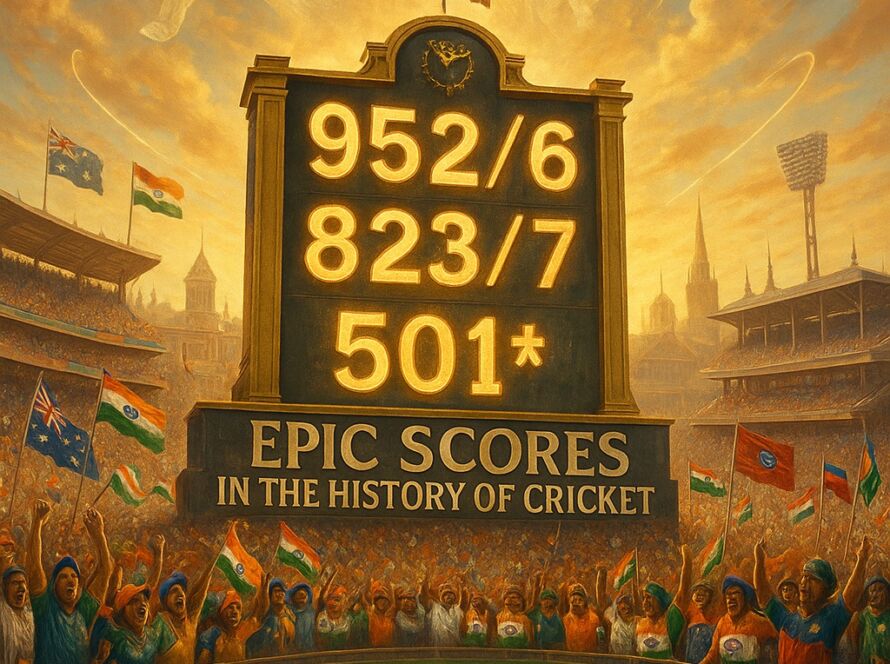The Indian Premier League (IPL) has given cricket fans numerous iconic rivalries over its illustrious history, but few matchups generate as much excitement and tactical intrigue as encounters between RR vs CSK . These two founding franchises of the IPL represent contrasting philosophies, strategies, and team cultures that have evolved over years of competition.
This comprehensive analysis delves into the multifaceted aspects of this compelling rivalry, examining head-to-head statistics, memorable encounters, star performers, tactical approaches, and future prospects. Whether you’re a dedicated follower of either franchise or simply a cricket enthusiast, this exploration offers valuable insights into one of the IPL’s most enduring contests.
Historical Context and Team Identities
The Inaugural Champions vs The Consistent Performers
Rajasthan Royals entered IPL folklore immediately by winning the inaugural 2008 season under Shane Warne’s inspirational leadership. Their triumph represented the ultimate underdog story—a team assembled on a modest budget overcoming star-studded opposition through tactical innovation and team cohesion.
Chennai Super Kings, meanwhile, established themselves as the model of consistency in the tournament. Under MS Dhoni’s calculated leadership, CSK reached the playoffs in 11 of their 13 seasons, winning four championships (2010, 2011, 2018, and 2021) and finishing as runners-up five times.
Contrasting Team Philosophies
RR vs CSK The two franchises have maintained distinctly different approaches to team building and cricket philosophy:
Rajasthan Royals have typically operated as shrewd talent spotters, unearthing hidden gems and providing platforms for young Indian cricketers to showcase their abilities. Their approach emphasizes:
- Innovative tactics and unconventional strategies
- Value-based player acquisition rather than pursuing established stars
- Nurturing young talent and developing players for higher honors
- Adaptability and resourcefulness over rigid game plans
Chennai Super Kings have built their success on stability and experience, with the team often nicknamed “Dad’s Army” for their preference for seasoned veterans. Their philosophy includes:
- Consistency in selection and team composition
- Strong core of experienced Indian internationals
- Strategic acquisition of impactful overseas players
- Faith in proven performers over untested talent
- Calm decision-making under pressure
These contrasting approaches have created fascinating tactical battles whenever the teams meet.
Head-to-Head Statistics and Analysis
Overall Record
The head-to-head record between these teams reveals a competitive but somewhat lopsided rivalry. Through the end of the 2024 IPL season:
- Total matches played: 28
- Chennai Super Kings wins: 16
- Rajasthan Royals wins: 12
- No results/ties: 0
These numbers indicate CSK’s slight dominance, maintaining a win percentage of approximately 57% against the Royals.
Venue Analysis
The performance of both teams varies significantly based on venue, highlighting how ground conditions influence their respective strategies:
At MA Chidambaram Stadium (Chennai)
- Matches played: 7
- CSK wins: 5
- RR wins: 2
CSK’s familiarity with their home conditions gives them a significant advantage, particularly with surfaces that traditionally favor their spin-heavy attack.
At Sawai Mansingh Stadium (Jaipur)
- Matches played: 6
- CSK wins: 3
- RR wins: 3
The teams are evenly matched at RR’s home ground, which typically offers good batting conditions with some assistance for pacers with the new ball.
At neutral venues
- Matches played: 15
- CSK wins: 8
- RR wins: 7
The closely contested nature of games at neutral venues underscores how removing the home advantage creates a more balanced playing field.
Performance Trends Over Different IPL Eras
The rivalry has evolved through distinct phases:
2008-2013: Early battles
- Matches: 11
- CSK wins: 6
- RR wins: 5
This period saw closely fought encounters with both teams developing their core identities.
2014-2019: CSK’s dominance
- Matches: 9
- CSK wins: 7
- RR wins: 2
After returning from suspension, CSK established clear superiority in this phase.
2020-2024: Renewed competitiveness
- Matches: 8
- CSK wins: 3
- RR wins: 5
Recent years have seen Rajasthan gaining momentum and turning the tables on their rivals with more aggressive cricket.
Memorable Encounters
IPL 2008: The Inaugural Season Clash
The first-ever meeting between these teams occurred during the tournament’s first season, with Rajasthan Royals securing a narrow victory that foreshadowed their eventual championship run. Shane Warne’s tactical brilliance was on full display as he marshaled his limited resources effectively against the star-studded CSK lineup.
IPL 2013: Watson’s Demolition
One of the most one-sided encounters came in 2013 when Shane Watson produced a devastating all-round performance. His 101 off just 61 balls, followed by 3/10 with the ball, delivered an 8-wicket victory for Rajasthan Royals and remains one of the finest individual performances in this rivalry.
IPL 2018: Dramatic Super Over Finish
The 2018 encounter at Chepauk provided one of the most thrilling finishes in IPL history. After scores were tied in regular play, the match went to a Super Over where Imran Tahir’s brilliant bowling secured victory for CSK, demonstrating their experience in handling pressure situations.
IPL 2020: Tewatia’s Miraculous Heist
Rahul Tewatia’s incredible innings in Sharjah stands as perhaps the most memorable individual performance in this rivalry. With RR needing 51 from 18 balls, Tewatia—who had struggled to 17 from 23 balls—suddenly exploded, hitting five sixes in a single over off Sheldon Cottrell to complete an improbable chase against CSK.
IPL 2022: The 190+ Run-Fest
The 2022 encounter saw both teams scoring above 190, with Rajasthan edging out CSK in a last-over thriller. Jos Buttler’s century was countered by Moeen Ali’s aggressive batting, but Yuzvendra Chahal’s crucial wickets ultimately tilted the balance in RR’s favor.
Key Players and Match-Winners
Rajasthan Royals’ Impact Performers
Shane Watson (2008-2015) Watson’s all-round capabilities made him central to many RR victories against CSK. His ability to counter CSK’s disciplined bowling attack while contributing crucial overs made him a perpetual threat.
Sanju Samson (2013-Present) As captain and premier batsman, Samson has repeatedly shown his ability to dismantle CSK’s bowling. His aggressive approach against spin has often neutralized CSK’s traditional strength.
Jos Buttler (2018-Present) Buttler’s evolution into one of T20 cricket’s most destructive openers has transformed RR’s approach against CSK. His ability to score rapidly during the powerplay often puts CSK under immediate pressure.
Yuzvendra Chahal (2022-Present) Since joining RR, Chahal has frequently troubled CSK’s middle order with his variations and control. His ability to take wickets during the middle overs has been crucial in restricting CSK’s scoring.
Chennai Super Kings’ Key Contributors
MS Dhoni (2008-Present) Dhoni’s captaincy and finishing abilities have frequently been the difference between the teams. His understanding of match situations and ability to target specific bowlers has secured numerous victories against RR.
Ravindra Jadeja (2012-Present) Jadeja’s three-dimensional skills provide CSK with remarkable flexibility. His left-arm spin has consistently troubled RR’s right-handed heavy lineup, while his fielding has created numerous game-changing moments.
Ruturaj Gaikwad (2020-Present) Gaikwad’s elegant strokeplay and consistency against RR’s pace attack has established him as a key performer in this rivalry. His ability to construct innings while maintaining an impressive strike rate makes him particularly dangerous.
Deepak Chahar (2018-Present) Chahar’s new-ball prowess has frequently provided CSK with early breakthroughs against RR. His ability to swing the ball and take wickets during the powerplay often establishes CSK’s dominance early in matches.
Tactical Battles and Strategic Elements
Powerplay Dynamics
The first six overs frequently determine the direction of RR vs CSK encounters:
CSK’s approach: Conservative batting with calculated risk-taking, focusing on building a platform while keeping wickets intact. Their bowling strategy typically involves using Deepak Chahar to secure early wickets.
RR’s approach: Aggressive batting targeting boundary options from ball one, accepting the higher risk of early wickets. Their bowling aims to contain rather than attack, especially against CSK’s experienced top order.
Historical powerplay statistics reveal that RR averages 47.3 runs for the loss of 1.7 wickets in the first six overs against CSK, while CSK manages 43.8 runs for the loss of 1.2 wickets against RR—highlighting their contrasting approaches.
Middle Overs Chess Match
The middle phase (overs 7-15) typically features the most fascinating tactical battles:
CSK’s spin dominance: Traditionally, CSK deploys multiple spin options during this phase, with Ravindra Jadeja, Mitchell Santner, and Moeen Ali maintaining pressure through tight bowling and strategic field placements.
RR’s counter-strategy: The Royals often employ the sweep shot and aggressive running between wickets to disrupt CSK’s spin plans. Their middle-order batsmen like Samson and Hetmyer are specifically instructed to target spin bowlers to force CSK into defensive field settings.
Death Overs Execution
The final four overs frequently decide the outcome of close encounters:
CSK’s approach: MS Dhoni’s calculated batting against specific bowlers, targeting predictable boundaries rather than continuous aggression. Their death bowling relies on yorkers and wide slower balls from Dwayne Bravo (historically) and more recently from Matheesha Pathirana.
RR’s strategy: More high-risk, high-reward batting with innovative shots and late-order hitters. Their death bowling under pressure has traditionally been a weakness, though recent improvements with specialists like Trent Boult have addressed this vulnerability.
Evolving Dynamics and Future Outlook
Recent Power Shift
The last few seasons have witnessed a gradual shift in the balance of power, with Rajasthan Royals adopting a more data-driven approach while maintaining their eye for talent. Their emphasis on aggressive batting throughout the innings has particularly troubled CSK’s traditional containment strategy.
CSK, meanwhile, has begun evolving beyond their “Dad’s Army” image, integrating promising youngsters like Ruturaj Gaikwad, Matheesha Pathirana, and Tushar Deshpande alongside their experienced core.
Key Matchups to Watch in Future Encounters
Several player-vs-player contests will likely define upcoming matches:
- Jos Buttler vs Deepak Chahar: Buttler’s aggressive intent against Chahar’s swing bowling during the powerplay
- Sanju Samson vs Ravindra Jadeja: Samson’s aggressive approach against Jadeja’s controlled left-arm spin
- Trent Boult vs Ruturaj Gaikwad: Boult’s inswinging deliveries challenging Gaikwad’s technical proficiency
- Yuzvendra Chahal vs MS Dhoni: Chahal’s leg-spin variations against Dhoni’s calculated hitting
Influence of Auction Dynamics and Team Rebuilding
With the mega auction approaching and potential changes in retention rules, both franchises face crucial decisions that could reshape this rivalry:
CSK’s transition challenge: Managing the eventual succession planning for MS Dhoni while maintaining their core philosophy of experience and stability.
RR’s sustainability test: Converting their talent identification into consistent performance by retaining their emerging stars rather than losing them to other franchises.
Impact on IPL’s Competitive Landscape
The RR vs CSK rivalry contributes significantly to the IPL’s appeal through several unique elements:
Tactical Diversity
The contrast between CSK’s methodical approach and RR’s innovative strategies showcases the tactical variety possible within T20 cricket. This clash of philosophies provides valuable learning opportunities for viewers and developing cricketers alike.
Development Pathways
Both teams have contributed distinctively to player development, with RR focusing on unearthing raw talent and CSK excelling at rejuvenating careers and maximizing experienced players’ contributions. This diversity of approach strengthens Indian cricket’s talent pipeline.
Narrative Richness
The storylines surrounding these encounters—underdog ambition versus established excellence, innovation versus consistency, youth versus experience—add narrative depth to the IPL beyond mere statistical competition.
Conclusion
The RR vs CSK rivalry encapsulates much of what makes the IPL special: contrasting philosophies, tactical innovation, star performers, memorable encounters, and evolving dynamics. What began as a straightforward contest between underdogs and powerhouses has developed into a multifaceted rivalry with numerous layers of complexity.
As both franchises continue to evolve, adapting to changing player personnel and emerging T20 strategies, this rivalry promises to deliver compelling cricket for years to come. The blend of tactical chess, individual brilliance, and team culture makes RR vs CSK encounters essential viewing for cricket enthusiasts seeking to understand the strategic depth of modern T20 cricket.
For fans of either franchise, neutrals, or students of cricket tactics, matches between these pioneering IPL teams offer invaluable insights into the beautiful complexity of the short format game.
FAQ: Frequently Asked Questions About Rajasthan Royals vs Chennai Super Kings
Who has the better head-to-head record between Rajasthan Royals and Chennai Super Kings?
Chennai Super Kings hold the advantage in the head-to-head record against Rajasthan Royals. Through the 2024 IPL season, CSK have won 16 matches while RR have won 12 matches in their 28 encounters. This translates to a win percentage of approximately 57% for CSK against the Royals.
What was the most memorable match between RR and CSK?
While several matches stand out, the 2020 IPL encounter in Sharjah featuring Rahul Tewatia’s incredible comeback innings is widely considered the most memorable. After struggling to 17 runs from 23 balls and facing fan criticism, Tewatia remarkably hit five sixes in a single over against Sheldon Cottrell to complete an improbable run chase for Rajasthan Royals against Chennai Super Kings.
Which players have performed best in RR vs CSK matches?
From the Rajasthan Royals, Shane Watson historically dominated this fixture as an all-rounder, while more recently Jos Buttler and Sanju Samson have been standout performers. For Chennai Super Kings, MS Dhoni has been the consistent match-winner, with crucial contributions from Ravindra Jadeja and Ruturaj Gaikwad in recent years.
Why is the RR vs CSK rivalry significant in the IPL?
This rivalry is significant because it represents a clash of contrasting cricket philosophies and team-building approaches. CSK embodies consistency, experience, and methodical tactics, while RR represents innovation, youth development, and resourceful management. Their encounters showcase the tactical diversity possible within T20 cricket.
Has either team won an IPL final against the other?
No, despite their long-standing rivalry, Rajasthan Royals and Chennai Super Kings have never met in an IPL final. RR won the inaugural IPL in 2008 against Delhi Daredevils (now Delhi Capitals), while CSK’s four titles came against Mumbai Indians (2010), Royal Challengers Bangalore (2011), Sunrisers Hyderabad (2018), and Gujarat Titans (2023).
How have the teams’ strategies against each other evolved over time?
Initially, CSK dominated through their structured approach and experienced players. However, in recent years, RR has adopted a more data-driven, aggressive batting strategy that has troubled CSK’s traditional containment tactics. RR now focuses more on attacking CSK’s spin bowlers, while CSK has countered by introducing more pace variations and developing specific plans for RR’s key batsmen.
Which venue has hosted the most matches between these teams?
The MA Chidambaram Stadium in Chennai has hosted the most matches between these teams, followed by the Sawai Mansingh Stadium in Jaipur. CSK has generally performed better at their home ground, while matches at Jaipur have been more evenly contested.
Are there any players who have represented both franchises?
Yes, several players have represented both teams over the years. Notable examples include Shane Watson (who had significant stints with both franchises), Stuart Binny, Shadab Jakati, and Pawan Negi. These players often bring valuable insights about the opposing team’s strategies and culture when they switch sides.
How do the captaincy styles of MS Dhoni and Sanju Samson differ in this rivalry?
MS Dhoni’s captaincy against RR typically features meticulous planning, calculated bowling changes, and strategic field placements based on extensive data analysis. Samson employs a more intuitive, flexible approach that encourages individual expression and adapts quickly to changing match situations. Dhoni excels in extracting performance from experienced players, while Samson is skilled at giving confidence to younger talents.
What impact does this rivalry have on young Indian cricketers?
This rivalry has been particularly beneficial for young Indian cricketers, with both teams providing different development pathways. RR often gives youngsters immediate responsibility and prominent roles, while CSK typically integrates developing players gradually alongside experienced mentors. Players who perform well in this high-pressure rivalry frequently gain selectors’ attention for national team consideration.



